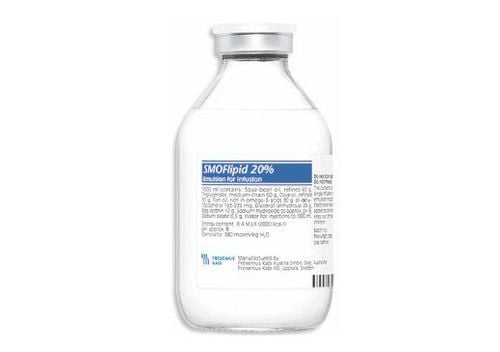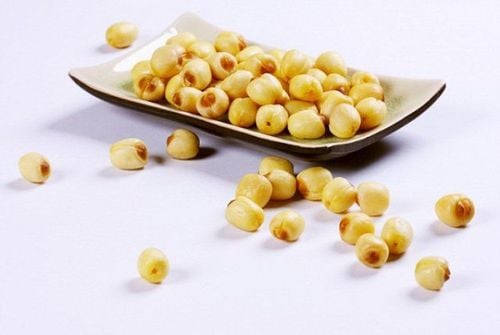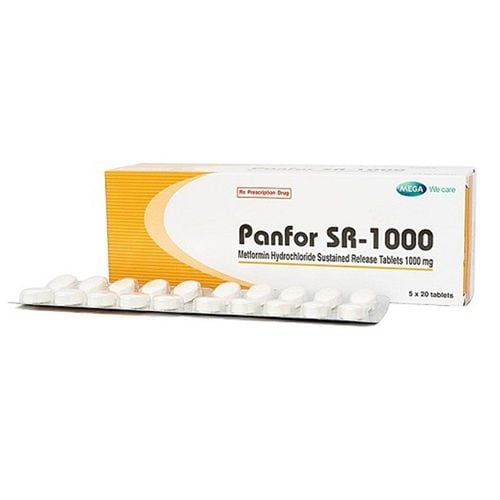This is an automatically translated article.
Constipation in children occurs for many reasons, some of which can come from common causes such as not eating enough fiber. Therefore, when children are constipated, parents actively give children more vegetables than usual. However, this is not necessarily true for all cases, because constipation is also related to other issues such as exercise mode, water content put into the body according to needs...
1. Constipation in children and causes
Constipation in children appears with the condition that the child has a frequency of defecation less than the norm, the shape of the stool is solid, dry and the interval between bowel movements is quite long. A child's bowel movements are usually at least once a day. However, if each time the child passes with a very small amount of stool and is dry or the child may experience burning pain during defecation, the anus is red, swollen, bleeding... then this may be a sign of constipation in children .
Reasons for constipation in children
Improper nutrition may cause constipation in children to appear. Parents often give their children solid and solid foods and drink very little water and milk, which will cause a nutritional imbalance, making the child prone to constipation. Moreover, in the process of taking care of children's nutrition, parents who supplement children with a lack or excess of fiber will also cause constipation. In the case of infants with neonatal constipation, the cause may come from the mother who is also constipated, thereby affecting the baby through the milk supply. Using formula that is not according to the dosage and method instructions will cause the baby to experience constipation. Parents can arbitrarily change the formula or the wrong ratio between milk and water, which will cause constipation in children. Children have a habit of holding back from going to the toilet: Children who go to kindergarten often have a shy and fearful mentality, which can easily lead to a situation of holding back defecation. In addition, the cause may be that the child is busy playing, is not familiar with the toilet, is afraid of being dirty, .. also makes the child form a habit of not going to the toilet. When children form this bad habit, it can cause feces to accumulate and for a long time will make it difficult for children to urinate. Children who are stressed and less active in physical activity can limit the body's ability to excrete and eliminate toxins. Children who are sick and using medicine not exactly as prescribed by the doctor can make them more likely to become constipated. Some disease symptoms related to children's constipation such as anemia, rickets, malnutrition, respiratory infections... Constipation in children can be related to a number of diseases such as congenital megacolon birth, hyperthyroidism, acute and chronic colitis or intestinal abnormalities, diseases around the anus, diseases related to the spine, electrolyte disorders in the blood...

Nhiều phụ huynh đang có thắc mắc như trẻ em ăn gì để hết táo bón
2. Foods in the diet that help children improve constipation
What to eat so that children do not get constipated? or what children eat to get rid of constipation is always a question that every parent cares about. The choice of processed foods for children will also have higher criteria to help improve the child's constipation. Some foods can help in this situation:
Spinach. The vegetable has a cold love, and is a very good diuretic and detoxifier. Moreover, vegetables contain a rich content of pectin mucus, which helps the digestive system of children work easier, stimulates intestinal peristalsis, has a laxative effect, softens stools and helps push stool out during the process. defecation. Red amaranth has a cool, cooling, diuretic and antiseptic effect. So red amaranth is often used to support the treatment of kidney-related diseases, dysentery, constipation in children. Broccoli is rich in fiber, and it also helps increase the volume of stools, making it easier for children to pass stools. Moreover, broccoli also contains quite rich nutritional components such as vitamin C, vitamin K, folate ... very good for the development of children. Sweet potatoes are on the list of foods that answer most of the questions of parents: what to feed your baby to relieve constipation. Ingredients in sweet potatoes contain a lot of insoluble fiber in the form of cellulose and lignin. Both of these substances help increase the weight of the stool, making it easier for the child to pass stool. In addition, sweet potatoes also contain fiber and pectin that bring many benefits to the digestive system of children. In addition to supporting the child's digestive system to function smoothly, sweet potatoes also provide the necessary nutrient content for children to develop. And parents can use sweet potatoes in their children's daily meals with different processing methods such as steaming, boiling, baking or simmering and mashing to make soup and porridge.
Ripe bananas are considered as a fruit with a rich nutritional content and are especially used for babies just starting to eat weaning. Bananas also provide the body with many nutrients such as potassium, folic acid, vitamin B6, pectin... and contain about 12% of fiber needed per day. Bananas also help stimulate bowel movements, creating favorable conditions to improve constipation.

Cho bé ăn gì để hết táo bón, cha mẹ có thể sử dụng chuối để chế biến
Constipation can be common in children because the digestive system is not fully developed. Therefore, parents need to have knowledge about special nutritional care to help nurture children to develop in the best way. At the same time, avoid frequent situations of constipation that cause many consequences for children's health such as enteritis, hemorrhoids, malnutrition, digestive disorders... Besides, parents need to create a favorable environment for children. Increase exercise to help the digestive system work better. At the same time, encourage children to use water according to the recommended needs.
In order to limit the child's constipation as well as the use of antibiotics, parents should pay attention to the nutrition that improves the child's resistance. At the same time, supplementing with supporting foods containing lysine, essential micro-minerals and vitamins such as zinc, chromium, selenium, B vitamins, etc., helps support the immune system, strengthens the resistance so that children have less energy. sick and less likely to have digestive problems.
Please dial HOTLINE for more information or register for an appointment HERE. Download MyVinmec app to make appointments faster and to manage your bookings easily.













